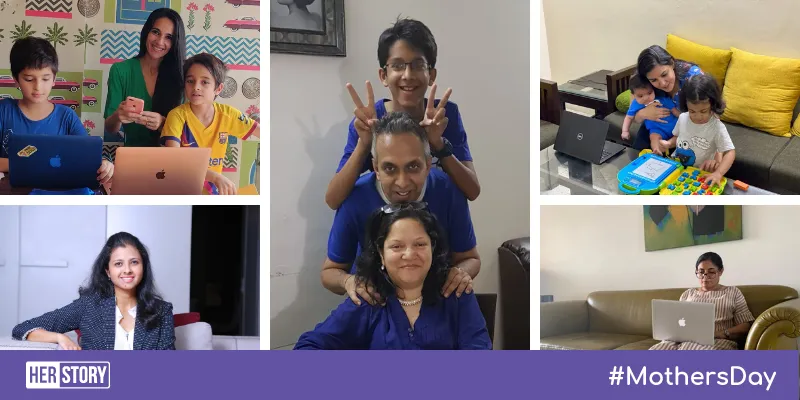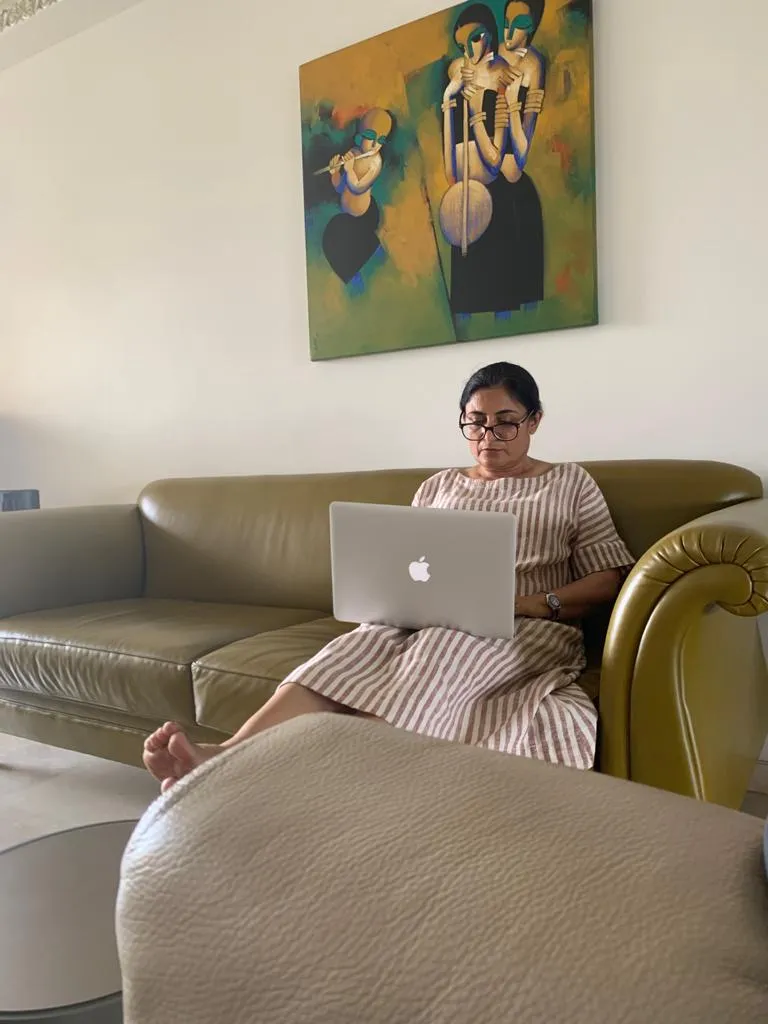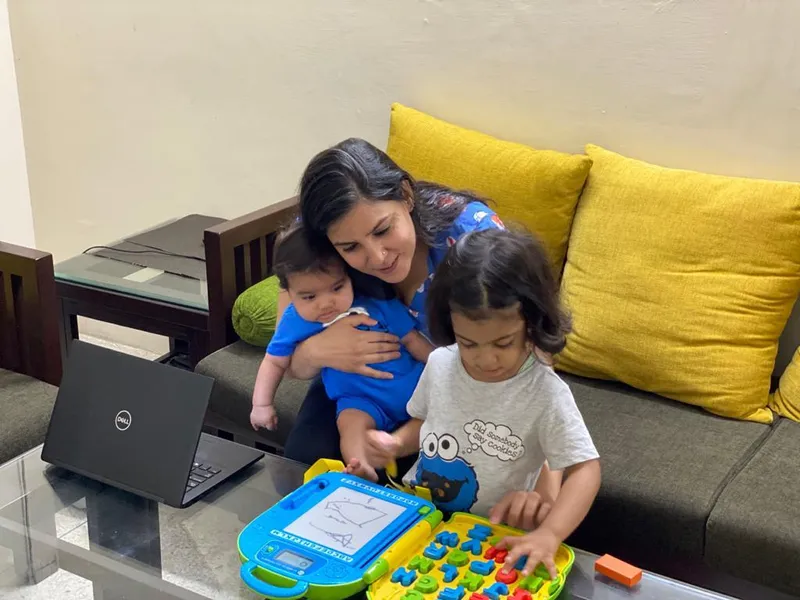LinkedIn study explores how working mums juggle different worlds with elan as they climb the ladder to success
As part of the LinkedIn Opportunity Index 2020 findings, it was found that Indian working mothers face a lot of barriers to get ahead in life, but at the same time, they are also optimistic about overcoming these barriers compared to working fathers. We present a few inspirational stories.
A day in the life of a working mother is a lesson in multi-tasking. Between juggling household chores, childcare, and office dynamics, working women face a number of obstacles in both their personal and professional lives.
Who can forget the former PepsiCo chief Indra Nooyi’s statement that despite being at the top of her career, she was expected by her mother to pick up the milk before she announced she was made President of the Board? The news can wait, said her mother, asking her to get the milk first, proving that work-life balance even in this age is difficult for most women to navigate.
There are many other stories that strike the same chord, of women having to give up on their careers, take breaks, or refuse promotions because it “interfered” with their family life.
Despite these challenges, women are rising to the top of their careers, and are optimistic about their growth.
As part of the LinkedIn Opportunity Index 2020, LinkedIn looked at what opportunity means to people, and what are the barriers they feel in achieving this opportunity. LinkedIn commissioned independent market research firm GfK to conduct this study between September and October 2019. The survey was conducted among 18 to 65-year-olds across 22 countries via online interviews, with over 30,000 respondents.
One such group surveyed also included working mothers. An interesting takeaway from the findings show that Indian working mothers face a lot of barriers to get ahead in life, but at the same time, they are also optimistic about overcoming these barriers in comparison to Indian working fathers.
Some of the key insights from the index include:
Working mums say lack of confidence, gender, and family commitments are key barriers.
Working mothers across APAC think financial status, age, lack of time, lack of networking and connections, and a difficult job market are the top 5 opportunity barriers they face.
However, working mothers in India cite education background, gender, and lack of confidence as the top three barriers that hold them back. Working mothers are nearly 30 percent more likely to think ‘lack of confidence’ stops them from achieving opportunities when compared to working fathers in India.

Nearly double the number of working mothers cite ‘gender’ as a key barrier, in comparison to working fathers and men.
Family commitments, lack of support, travel-related challenges, and unable to keep up with technology changes daunt working moms across APAC. Findings also show that working mothers are 35 percent more likely to face a lack of support and family commitment than working fathers in APAC.
Working mums look for jobs with work-life balance
Working mums seem to continue to look for a fulfilling career that helps them juggle various responsibilities. They are more likely to be actively searching for a rewarding job, a new career path, and a job that offers them good work-life balance.
LinkedIn research shows that working mothers are almost 20 percent more likely to look for a job that offers them good balance when compared to men in APAC.
Working mums are more optimistic, motivated about overcoming barriers
In spite of the challenges, Indian working mums are more optimistic about overcoming barriers in comparison to Indian working dads.
Working mothers are more likely to pursue the ability to change to a new career path than all females and males in APAC, and are more likely to move to a rewarding job/career than all females in APAC.
In India, fewer working mothers (15.9 percent) think ‘lack of motivation’ is a difficult barrier to overcome when compared to working fathers (20 percent), women (22.2 percent), and men (29.5 percent).
Backing these insights with inspiring stories, LinkedIn engaged with influential and engaging working mothers on the platform to understand their challenges, and how they overcome barriers to balance work with parenthood.
Here are some inspirational quotes from successful women who have made their mark in diverse fields.
Tara Sharma Saluja, Actor-Entrepreneur

Tara is a British-Indian actor, entrepreneur, creator, and producer of her show ‘The Tara Sharma Show’. She is a big believer in “each to their own”, and doing what works for one according to the situation.
She says, “Personally for me, once I became a mum, I realised I wanted to be a hands-on mother, and also work so I created my own multi-platform show, TheTaraSharmaShow. My Dad's advice, 'don't wait for the phone to ring with an offer, if you want to do something that doesn't exist, create it', and support from my husband Roopak Saluja, whose company co-produces the show with me, and my family, coupled with the confidence that my education and career in the entertainment and corporate world gave me, helped me reinvent. I believe every day is #FathersDay #ChildrensDay #EveryonesDay, but as a day is culled out to celebrate mums, I'd like to wish all you mums and encourage you to do what works for you and your family, whether as a full-time mum, a stay-at-home mum, a working mum or a mumpreneur.”
Apurva Purohit, Businesswoman and Author

Apurva Purohit is the President of Jagran Prakashan that owns publications like Dainik Jagran, Mid-Day, Inext, and Inquilab along with India’s first private FM radio station Radio City.
Apurva says, “Many working mums tell me they feel guilty leaving their children behind at home while they are working, especially when they are small.”
Women tell me, “Ma’am, when I am getting ready to go to work, and the kid is standing next to me and pulling my dress or saree and telling me, ‘Mama, don’t go to work’, nothing is worth my kid’s tears. That’s the moment they want to leave everything and stay at home.”
“I want to tell you all of us feel guilty. Even after 20 years, I feel guilty I left my six-year-old when he had chickenpox at home. But what will happen if you stay at home? Will the guilt go away? No. it will always stay. You will exchange one form of guilt for another.”
“So, on one hand, you will feel guilty about leaving your kids at home, and on the other hand, you will feel guilty you gave up your career you loved, you gave up the lifestyle you could manage with two incomes. So, learn to manage this guilt. One way to manage this guilt is to accept that any working mum feels guilty. The other way is to co-opt your family into your career, so ask for help. Ask your husband, your mother, mother-in-law, and your organisation to support you when you are going through the child-rearing phase. You are not a superwoman, you can’t be,” she says.
“Finally, all of us have that little imposter sitting inside us telling us we are not good enough. I’m here to tell you that only you are good, you are great. You have talent, you have skill, the ability to work hard – all you need to be is brave, bold, and courageous.”
Divya Kohli, Nestle

Currently, as the Regional HR Head for Nestlé Nutrition business for South Asia Region, Divya Kohli is responsible to drive the creation and execution of People Strategies and Plans that attract, develop, and retain employees to support the organisation’s business needs.
She says, While you work ‘from’ home or ‘at’ home, few mantras that have helped me strike the balance so far are:
Ask for help - I cannot emphasise the importance of calling out for help or support from your ecosystem. I have myself experienced thinking a zillion times before asking for help, owing to a self-induced guilt! Personally, having an extraordinarily supportive 50:50 partner, doting grandparents to my daughters, empathetic manager, and team-like-family have kept me sane and thriving. Moreover, it has helped in debunking stereotypical gender role attribution, and encouraged every family member to share household responsibilities.
Smash the ‘maternal wall’ - Unconscious biases against working mothers are persistent and often unopposed. I have often seen managers at work and partners at home doubting working mothers about their capabilities, coloured by a multitude of stereotypes, and assumed responsibilities. There are actions working mothers, employers, and everyone can take to help in this regard - confront the underlying bias and bring it to the surface. It will give women a chance to realise their fullest potential without bearing the load of prejudice that can hold a working mother back.
Ease your spirit – Be kind to yourself and take out time to rejuvenate your spirit. Go for whatever puts you at ease in these unprecedented times – doing yoga, pretend play with kids, catching up with friends on video calls, exploring your culinary talent, etc., can help you unwind and fill your cup back with goodness.
Follow your internal compass – Define the rules of the game for yourself and carve out priorities in your day. When does work time end and family time begins or vice versa? In which circumstances the rules can be adapted for urgent/dynamic needs? As I practice this, it has enabled me to “shift gears” in my mind and be mentally and physically be present at work when at work, and likewise at home with family!
Neha Bagaria, Entrepreneur

For Neha, the inspiration to launch JobsForHer - an online portal that helps women re-enter the workforce after a break - was her own experience with motherhood. JobsForHer helps women start, restart, and rise in their careers through reskilling, mentorship, advanced job searches, and connecting with other women professionals.
Eight-five percent staff of JobsForHer comprise women, and so Neha shares five tips on how mothers can stay focussed and productive at home during the coronavirus lockdown.
She says, as most of our team comprise women, we understand what so many women on our platform and beyond are going through during a lockdown crisis like this. I thought I’d share with you five tips that’s been really helping me:
- Stick to a schedule – Make one for yourself and your children and stick to that from morning to evening so everyone knows what’s expected of them.
- Find your workspace or corner – Make sure there’s one part of the house that shows when you are in it you are working, and the other family members will know they are not to disturb you.
- Have the conversation, no matter how difficult it is, with those you are living with, however difficult it may be with your husband, children, in-laws, where they need to realise why your work is important and why you need to stay productive.
- Like Sheryl Sandberg says, “Make your life partner a real partner”. Enlist your spouse’s support. Make sure the chores are equally divided between both.
- Make some me-time to refuel your energies, and only then you can be there for all around you. Mediate, talk to your friends, or sit in a corner to ruminate.
Deepali Naair, IBM

As CMO of IBM India and SouthAsia, Deepali Naair has experience spanning over 20 years in areas of marketing, ecommerce, brand, as well as product and sales. She has also held various leadership positions such as Country Head-Brand, Customer Service and ecommerce at L&T Financial Services and Vice-President and Head of Marketing at HSBC.
As a working mother, she feels strongly about a few things. She says, “A working mother is very different from a working woman. The work-life balance of a working mother has to be measured over years, blocks of three or five years. There are times in our lives where there is a work emergency – where I have an annual closing or an annual report, a big event or a product launch. At that time my home front needs to understand. Simultaneously, there are home emergencies, where our families need our attention, and that time the work-family needs to understand. And that’s what creates work-life balance.
“I have been through a parent’s cancer and my work family was extremely understanding. My boss and my colleagues supported me. I also had to take a sabbatical and came back really strong. Covid-19 is also an emergency. I would like to narrate an incident. I was standing in the queue to buy vegetables and I got late for an Asia-Pacific team meeting because the queue moved really slow. But I felt comfortable sending the message to my boss that I was in the queue. I was honest, candid, and transparent, and I could do that IBM has that culture that understands.”
Edited by Megha Reddy





![[App Fridays] TikTok lovers, are you ready for Firework, the new short video platform in town?](https://images.yourstory.com/cs/2/a182c7e0140711e987e2f7248b252f46/Firework1571401406063png?mode=crop&crop=faces&ar=1%3A1&format=auto&w=1920&q=75)

